Heat Pump Installation For Philly Homes And Businesses
Ready to save money and enhance your comfort with a state-of-the-art heat pump installation? We’ll help you find the most trusted installation team for your Philadelphia home or business. You can browse reviews and read about each company before setting up a free consultation directly with them.
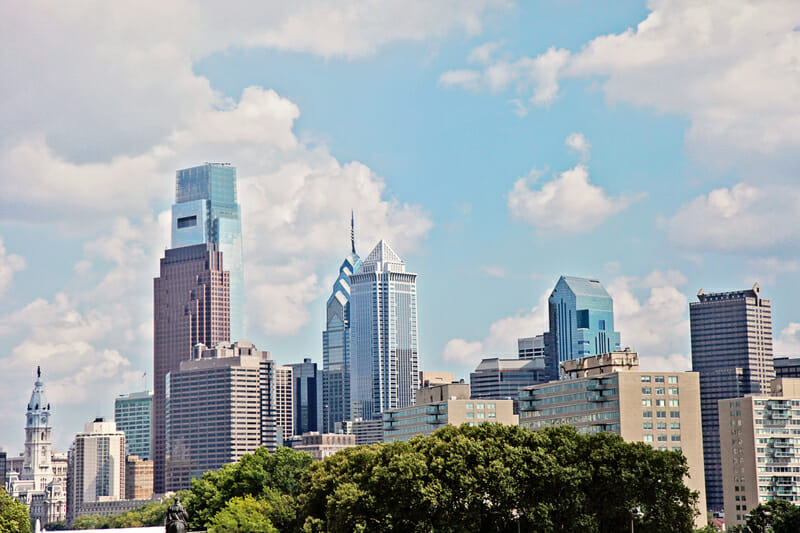
When Heat Pumps Are On the Rise, Energy Costs Go Down
Did you know that Pennsylvania households use 16% more energy than the national average to heat and cool their homes? That’s And, half the energy consumed by homes here is used for space heating.
Cutting down your utility bills can make a significant impact on your wallet and the climate. Heat pumps and ductless systems can help you reduce your heating and cooling costs by hundreds of dollars every year.
These systems are on the rise: 2022 was the first year that electricity overtook natural gas as the main heating source for homes across the nation.
Now, heat pumps and mini splits are becoming more widely available — and more affordable than ever. In June 2022, the White House invoked the Defense Production Act to increase the production of heat pumps and other energy-efficient HVAC equipment in the U.S.
You can also get reimbursed up to $8,000 via the National Inflation Reduction Act for installing new energy-efficient HVAC in your home.
Benefits of Ductless Heat Pump Installation in Philadelphia, PA
A ductless heat pump system works like air conditioning in the summer and a “reverse air conditioner” in the winter.
Here’s why Philly homeowners and businesses are installing these when replacing heating and central air conditioning:
- Better comfort all year
- Lower energy bills in the winter
- Lower carbon footprint
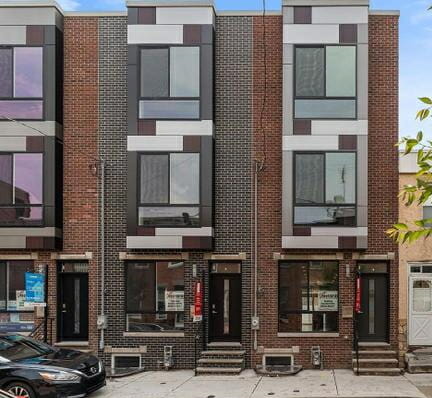
Are you ready to replace your old central air conditioning system? Or are you looking for a more efficient heating system? Either way, mini split heat pumps give you a comfort upgrade with lower energy bills.
How Do These Systems Work?
Heat pumps are a type of heating and cooling system that work by moving heat from one location to another. They are efficient and environmentally friendly because they use heat from the air or ground.
That’s much different than burning fossil fuels to generate heat in the winter.
The basic components of a heat pump system are an indoor unit, or air handler, and an outdoor unit. The outdoor unit contains a compressor and a heat exchanger. The indoor unit contains a fan and a heat exchanger.
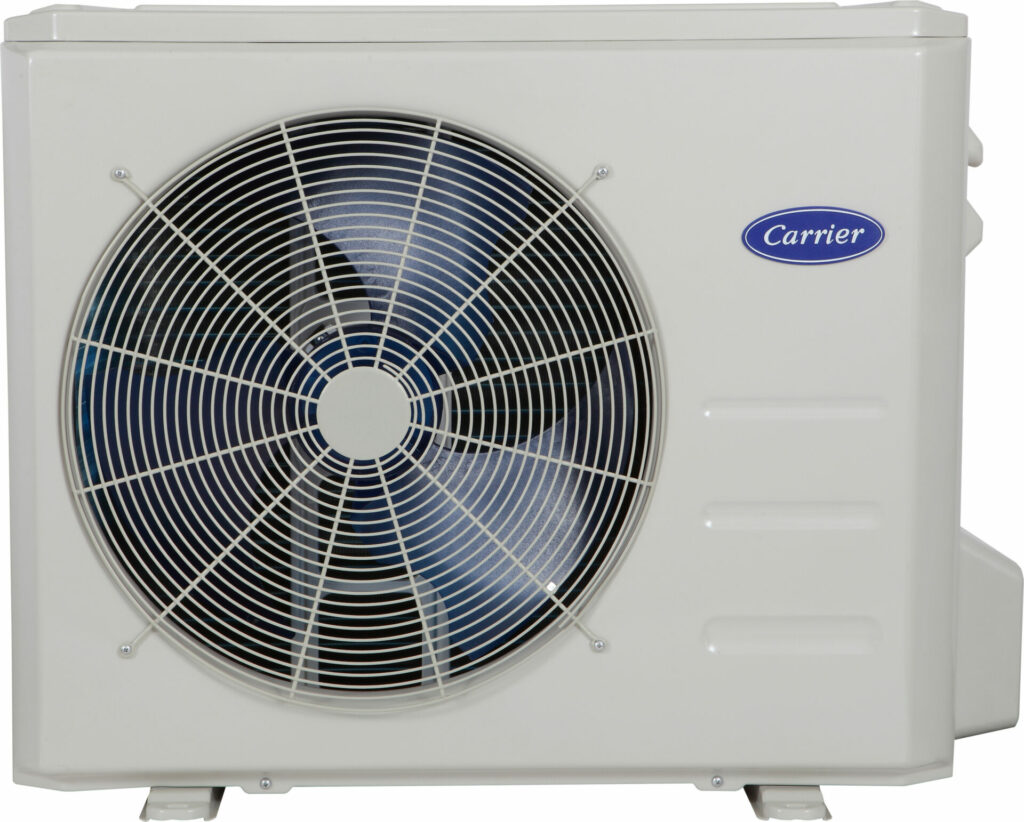
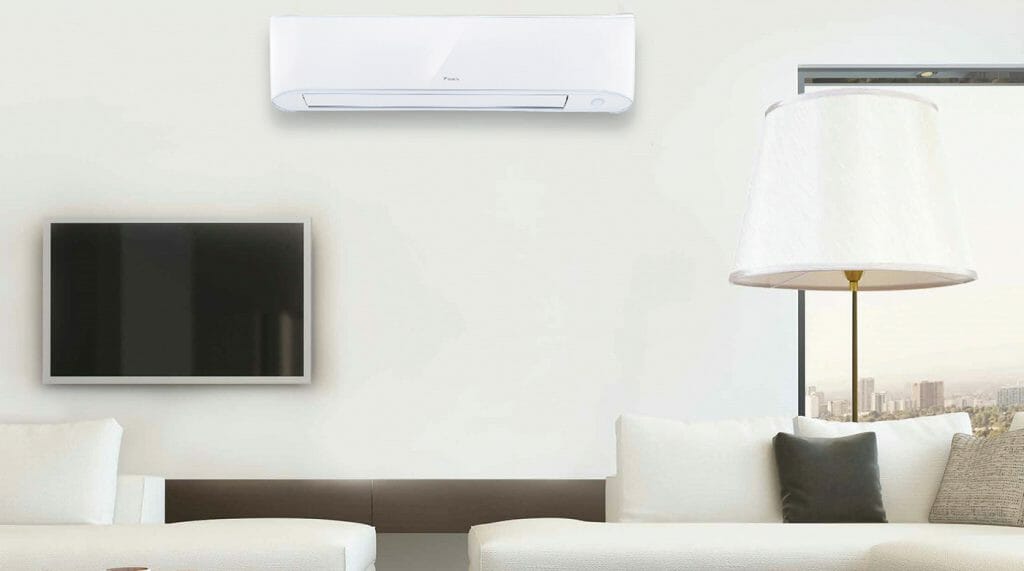
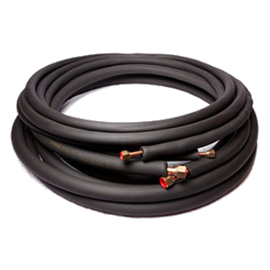
In a ducted system, you’ll use ductwork and vents to move air throughout the house. With a ductless mini split, a refrigerant liquid moves only heat — not air — throughout the space.
This process eliminates the need for ductwork and vents. We’ll explain it further a little later.
In the winter, the outdoor unit absorbs heat from the air and transfers it to the indoor unit. From there, the heat gets released into the indoor air.
Heat pumps can absorb heat from the air even when outdoor temperatures are as low as -15°C. That makes them more than strong enough for the worst a Philly winter can throw at it.
The process gets reversed for the summer. The outdoor unit absorbs heat from the indoor air and releases it outside.
The heat pump’s refrigerant is key to this process. It circulates between the indoor and outdoor units. And, it carries the heat in or out of the house.
The refrigerant undergoes a phase change, from liquid to gas and back to liquid again. This change in phase allows it to absorb and release heat more efficiently.
Heat Pump FAQs
Do heat pumps work in Philadelphia?
Today’s heat pumps are powerful enough to keep a Philadelphia home warm all winter while still operating more efficiently than gas, oil, or traditional electric heat. For year-round use, there are models that work even when it’s negative 20 degrees outside. They provide excellent air conditioning, too.
Who is a heat pump ideal for?
Heat pumps are ideal for homeowners or businesses that want to reduce their energy bills or carbon footprints. These systems use much less energy than traditional HVAC units. Anyone can consider an upgrade when it’s time to replace the heating and cooling in their home or commercial space.
How much does a heat pump cost including installation?
A ducted heat pump system costs between $4,000 and $7,500 with installation. That’s about the same as a traditional gas furnace and central air. High-end units or systems for larger homes can reach $10,000. The lowest-priced models cost around $3,000.